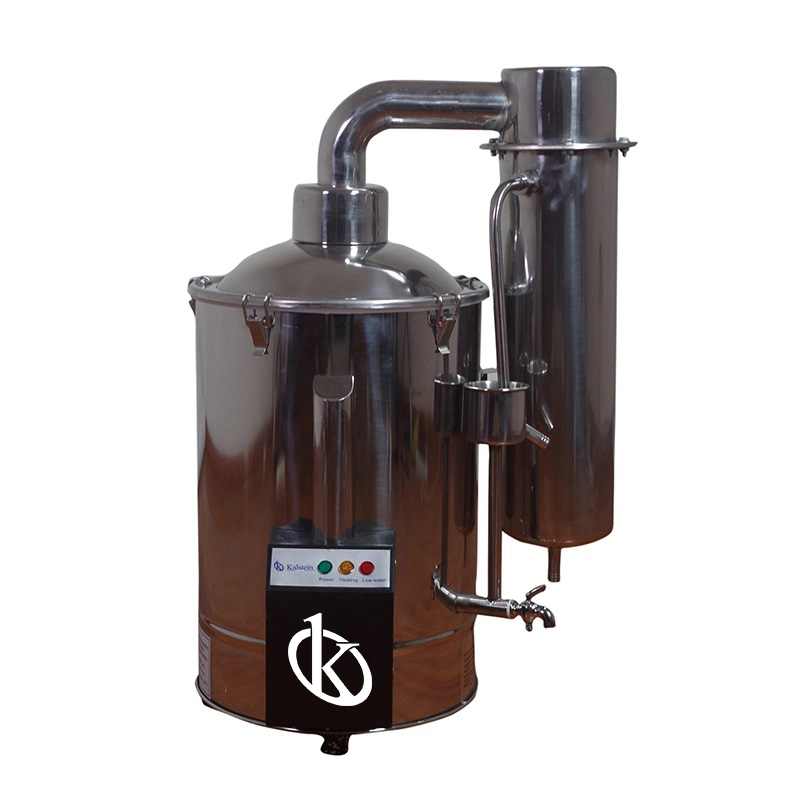In a dental clinic, water is an essential element. Water is used in all dental procedures and is required by most office teams. It is used for cleaning, rinsing and sterilizing instruments. In addition, it is used in the dental turbine to reduce heating.
The water used in the office should be of high purity, without microbiological or mineral contaminants, mainly because in dental equipment, the pipes that conduct the water, have internal plastic surfaces, are of considerable extension (10 m) and reduced light (0.5-1 mm).
These characteristics, associated with some internal microscopic imperfections and the prolonged time of water retention inside them, promote a favorable environment for the establishment of microorganisms and the formation of a biofilm. In addition, if the water has lime contents and other solid residues, they can cause the obstruction of the water ducts of the office equipment, particularly the rotary instruments. This results in:
- Decrease in the lifetime of instruments and equipment.
- Increase in the execution time of dental treatments.
- Increased power consumption and repair costs.
- Increased likelihood of office stops due to malfunctions.
With the assurance of the purity of the water used in the dental office, the risk of infections in patients, after a dental procedure, will be reduced. Likewise, it will allow a good functioning of the dental equipment.
Risk of infections in a dental office
The water provided by the service network may contain some impurities, even be contaminated with microorganisms. This favors the formation of biofilms in equipment hoses, mentioned in the previous paragraphs. This biofilm promotes the release of microorganisms in water that is distributed to the turbine and other instruments, which causes them to reach the patient’s mouth directly, during dental procedures.
In such cases, water may be ingested by the patient or come in contact with mucosal wounds and/or teeth. This favors the entry of microorganisms into connective tissue and possible reach of the circulatory system, which represents a high risk of infection for patients.
Alternative to improve water quality in a dental clinic
We have presented the importance of using quality water in the dental office. It is necessary to have a treatment system, which allows obtaining water free of impurities and contaminants. Water with a high level of purity, can be used in all equipment and for filling sterilizers. It can also be used for the washing of instruments and glassware.
Among the water purification systems available are water distillation equipment. These devices perform the purification of drinking water, through consecutive and controlled processes of vaporization and cooling, which allows separating water molecules from other molecules or elements that are diluted.
Description of distiller and distillation process
The design of this device will depend on the volumes of water required in the dental clinic. Generally speaking, it consists of a steam generator or boiling tank, immersion resistors, cooling water outlet, condenser, filter and distilled water tank.
This process begins with the heating of the water to the boiling point, in the container called steam generator or boiling chamber; then, the produced steam is captured and condensed in a condensing chamber; then, the freshly condensed water is filtered and stored in the distilled water tank. During distillation, most inorganic compounds and nonvolatile molecules do not evaporate with water and remain in the boiling chamber.
Kalstein distillers
At Kalstein we offer our customers a wide variety of water distillers, included in the YR series. You can choose the one that best suits your office’s needs. Kalstein water distillation equipment works in an automated way, therefore, it is easy to use. They are designed with a glass bucket at the top, which allows the observation of the distillation process. They promote water and energy saving and have a protection system for electric loads and also a protection function in cases where the water supply is reduced or interrupted. For more information about Kalstein distillers, visit the link HERE

